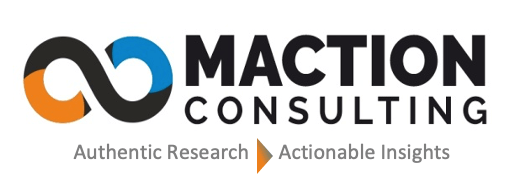Customer happiness is a lighthouse that points businesses toward success in the fast-paced business world. Not only is knowing your customers’ pulse a smart business move, but it’s also essential to keeping a competitive advantage. Herein lies the value of the art and science of forms and survey designs, which provides a thorough method for gauging and enhancing consumer satisfaction.
The Importance of Customer Satisfaction

A successful firm relies heavily on its ability to satisfy its customers. Content consumers aren’t only one-time buys; they develop into brand evangelists, spreading good word of mouth and encouraging repeat business. Good customer satisfaction levels support recurring business, higher sales, and a strong brand reputation. On the other hand, disregarding client happiness might result in a drop in patronage, unfavorable comments, and a damaged reputation.
The Foundation of Effective Survey Design
Creating forms and surveys with customer happiness in mind requires a solid basis in design. The formulation of objective, well-thought-out questions is guided by a clear target audience and objectives. This section delves into the essential components that constitute the cornerstone of an effective survey, guaranteeing significant discoveries and practical outcomes.
Clear Objectives and Goals
Establishing specific objectives and goals is the first step in comprehending and enhancing client happiness. Which particular facets of client satisfaction are you looking to gauge? Establishing a clear aim for your survey is essential to creating well-crafted questions and gathering pertinent information.
Target Audience Identification
Each customer is unique, so their needs and expectations may vary. By identifying your target audience, you may ensure the survey is tailored to the specific customer or demographic you are attempting to discover. Consider the best tool, the master survey, for creative, effective design surveys.
Create A Survey With Effective Questions

Creating thoughtful survey questions is the first step in increasing customer satisfaction. How questions are formulated influences the quality of the insights obtained, from selecting between open-ended and closed-ended inquiries to upholding objectivity. Let’s examine the essential components that turn survey questions into priceless tools for assessing and raising client satisfaction.
Open-Ended vs. Closed-Ended Questions
Gaining quantitative and qualitative insights requires carefully balancing open-ended and closed-ended questions. Multiple-choice and rating scales are closed-ended inquiries that yield organized, readily analyzed data. Conversely, open-ended inquiries allow clients to articulate their ideas on their terms and provide insightful qualitative data.
Avoiding Bias and Leading Questions
Developing impartial and neutral survey questions is crucial to guaranteeing the precision and dependability of your survey findings. Do not ask questions that nudge people toward a certain response. Ask inquiries that will, instead, elicit candid, objective criticism.
Question Flow and Logical Structure
A survey’s questions make sense to answer them. Before going into further detail, start with broad questions. This keeps participants interested and contributes to the overall coherence of the survey.
Implementing the Survey
Starting the implementation phase is the critical point at which the survey design becomes actionable insights. The practical procedures for implementing surveys, picking the best channels, and planning the data collection schedule are covered in this section. The careful handling of this crucial stage determines the success of the customer satisfaction process as a whole.
Choosing the Right Survey Channel
Reaching your target population requires careful consideration of the survey medium you choose. Popular choices include web-based, smartphone apps, and email surveys. To ensure a greater response rate, the channel you choose should fit the preferences and habits of your audience.
Timing and Frequency
When it comes to survey deployment, timing is crucial. Think about when your clients are most likely to be open to receiving feedback. To avoid survey weariness, consider the frequency of surveys as well. The possibility of insightful replies rises with a survey schedule that is both well-timed and well-spaced.
Analyzing and Interpreting Survey Data
The story concealed inside survey replies is revealed at the critical stage of survey design through data analysis and interpretation. This section explores the critical process of turning raw survey data into actionable insights that influence decisions for improving customer satisfaction via both quantitative and qualitative analysis and inquiry. Ability to do Data Analysis is part of it.
Quantitative Analysis
Numerical insights into consumer satisfaction levels can be obtained from quantitative data. Using statistical techniques and software to evaluate survey results, spot patterns, and calculate overall satisfaction ratings. Accessible visual aids like graphs and charts may help make difficult material easier to understand. Person has to hire Market Research Consulting Firms for their Quantitative Analysis needs.
Qualitative Analysis
Qualitative data gives client input depth and context, while quantitative data provides numerical insights. A more sophisticated method, frequently incorporating sentiment analysis and classification, is needed to analyze open-ended comments. This qualitative layer offers a deeper comprehension of the client’s attitudes and particular pain areas.
Implementing Changes Based on Survey Findings & Measuring customer satisfaction aims to promote positive change inside the company in addition to data collection. Putting survey results into practice shows a dedication to customer-centricity and ongoing development. It can entail improving the entire brand experience, streamlining customer support procedures, or refining goods. Person has to hire Market Research Consulting Firms for their Qualitative Analysis needs.
Communication with Customers
Open and honest communication is essential when making changes based on survey input. Inform your clients of your enhancements and how their input has shaped these choices. In addition to fostering trust, this highlights the need for consumer feedback.
Iterative Process
A dynamic statistic, customer satisfaction changes over time. Change implementation is a continuous, iterative process rather than a single action. Evaluate poll results often, solicit new ideas, and adjust strategies as needed.
Summing Up
In the corporate world, achieving client pleasure requires constant development. When survey design is done strategically and with a commitment to action, it may be a very useful instrument for determining consumer sentiment and directing organizational development. Businesses may create enduring relationships with their customers and prosper in the competitive landscape by realizing the value of customer satisfaction, becoming experts in survey design with master surveys, and putting feedback into practice.



Wow, marvelous weblog layout! How lengthy have you been running a blog for?
you made blogging look easy. The whole look of your website is great,
let alone the content material!
I think the admin of this site is truly working hard
in favor of his web site, as here every information is quality based material.
Thanks in support of sharing such a pleasant thinking,
post is good, thats why i have read it fully
Excellent post. I was checking constantly this blog and I am impressed!
Very helpful info specifically the last part 🙂 I care for such info a lot.
I was seeking this particular info for a very long time.
Thank you and best of luck.
Great web site. Plenty of helpful info here.
I am sending it to several friends ans also sharing in delicious.
And obviously, thank you on your sweat!
Hello there I am so grateful I found your site, I really found
you by mistake, while I was browsing on Digg for something else, Regardless I
am here now and would just like to say many thanks for a remarkable post and a all round exciting blog (I also love the theme/design),
I don’t have time to read it all at the minute but I have saved it and also added
in your RSS feeds, so when I have time I will be back to read much more, Please do keep
up the fantastic job.
Having read this I believed it was extremely enlightening.
I appreciate you spending some time and energy to put
this content together. I once again find myself spending a lot of time both reading and posting comments.
But so what, it was still worthwhile!
Hello it’s me, I am also visiting this site daily,
this site is in fact pleasant and the users are
really sharing fastidious thoughts.
You really make it appear so easy together with your presentation however
I in finding this topic to be actually one thing that I believe I would never understand.
It sort of feels too complicated and extremely broad for me.
I am looking ahead for your next post, I’ll try to get the grasp of it!
This is a topic which is close to my heart… Many thanks!
Where are your contact details though?
Please check : https://www.maction.com